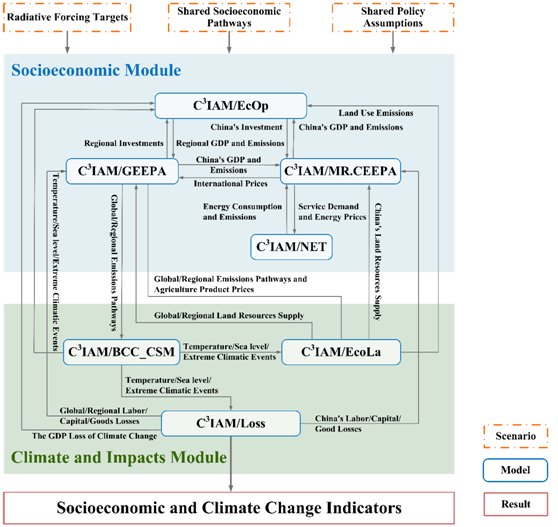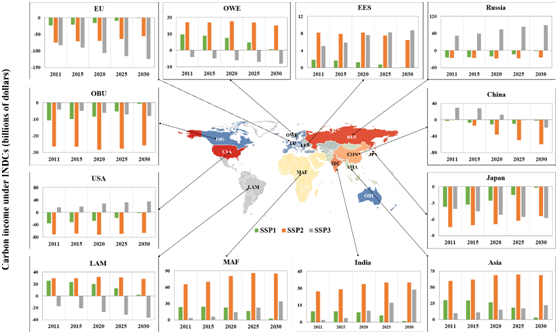The National Key Research and Development Program (2016YFA0602600) “Comprehensive Assessment Model of Economic Impacts of Climate Change” led by Prof. Wei Yiming's team achieves “Comprehensive Assessment of National Independent Emission Reduction Contribution under the Socioeconomic Path: The Application of the C3IAM Model”. The result was invited to be published in the International Disaster Prevention and Reduction Association's journal Natural Hazards. This article is the first editorial in chief invited publication for "Natural Hazards" for 30 years. Professor Tadepalli S. Murty, editor of the journal, has recommended this article and introduced the "China's Climate Change Integrated Assessment Model" developed by the research project. (hereinafter referred to as C3IAM)" and its latest research results. The first author of this paper is Prof. Wei Yiming, Director of the Energy and Environmental Policy Research Center. Project cooperation institutes: National Climate Center, National Information Center, Shanghai Institute of Advanced Research, Chinese Academy of Sciences, Tsinghua University, Peking University, and Beijing Institute of Technology Energy and Environmental Policy Research Center researchers are the coauthors of this article.


As the most important environmental issue today, climate change has a profound impact on the economic, social, political, diplomatic and other fields. It is a major challenge that the world must face together. The Paris Agreement adopted in December 2015 further clarified that the global temperature rise should be controlled to a long-term goal of no more than 2°C rise above pre-industrialization, and that the 1.5°C temperature control target should be established as a long-term effort to address climate change. In the future, global emission reduction will be conducted in a “bottom-up” model of “Intended Nationally Determined Contribution (INDC)”. The Integrated Assessment Model (IAM) is the most mainstream analytical tool for evaluating climate policy. The international mainstream IAM model team, as a pioneer in the field of research, has made significant contributions to the assessment of climate change policies. This paper focuses on the changes in the shared socio-economic path under the INDC target.
Links:
Paper:https://link.springer.com/article/10.1007/s11069-018-3297-9
Editor Recommendation:https://link.springer.com/article/10.1007/s11069-018-3330-z






